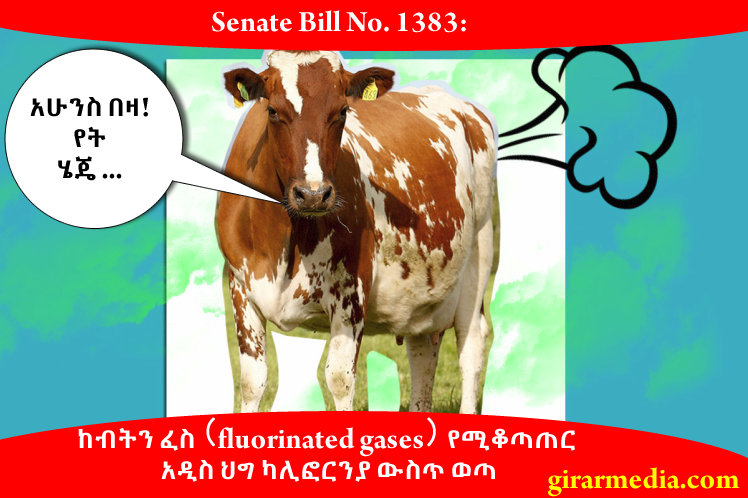በ2017 ካሊፎርንያ ውስጥ ተግባራዊ የሆኑ 17 ህጎች
Prop. 63: “2nd Amendment Nullification” Act.
- Prop. 63: “2nd Amendment Nullification” Act. ...
- SB880: “Bullet Button Ban.” ...
- SB3: Minimum Wage Hike to $15/hour by 2020. ...
- AB1785 The “Hands Free” Law. ...
- AB 1732: Single-User Restrooms. ...
- SB 1383: Controlling Cow Flatulence. ...
- AB 857: Ghost Gun Ban. ...
- SB1322: Legalizing Child Prostitution
-
Assault weapons: The new gun-control regulations broaden the definition of illegal assault weapons, require background checks for the first time for ammunition purchases and limit the lending of guns to family members. California bars purchasing, semi-automatic, centerfire rifles or semi-automatic pistols that lack a fixed magazine and have one of a number of features that include a protruding pistol grip or a folding or telescoping stock. If you already own one of these weapons you’ll have to register it.
Gender-neutral bathrooms: While North Carolina waged a proxy war in its restrooms over gender identity, California quietly went in the opposite direction. Assembly Bill 1732 requires all single-toilet bathrooms in businesses and public agencies to be gender neutral.
Minimum wage, equal pay and paid parental leave: The statewide minimum wage goes from $10 to $10.50 an hour for businesses with 26 or more employees — a rate that will rise to $15 by 2022. Under another law, Assembly Bill 1676, an employer can’t pay a woman less than her male colleagues because of her prior salary. Assembly Bill 2393 gives up to 12 weeks of paid parental leave to all K-12 and community college employees, including classified workers and community college faculty.
-
Motorcycles: Current law does not change; lane splitting by a motorcyclist remains legal if done safely. This bill defines lane splitting as driving a motorcycle, which has two wheels in contact with the ground, between rows of stopped or moving vehicles in the same lane. The bill permits the CHP to develop lane splitting educational safety guidelines in consultation with other state traffic safety agencies and at least one organization focused on motorcycle safety.
Child safety seats: Although this law was passed during the 2015 legislative session, it takes effect Jan. 1. Children under two years of age must ride rear-facing in an appropriate child passenger safety seat. Children weighing 40 or more pounds, or standing 40 or more inches tall, are exempt. California law continues to require that all children under the age of eight be properly restrained in an appropriate child safety seat in the back seat of a vehicle.
Use of Wireless Electronic Devices: Motorists are no longer permitted to hold a wireless telephone or electronic wireless communications device while driving a motor vehicle. Rather than holding the device, it must be mounted in the 7-inch square in the lower corner of the windshield farthest removed from the driver or in a 5-inch square in the lower corner of the windshield nearest to the driver. Another option is to affix the device to the dashboard in a place that does not obstruct the driver’s clear view of the road and does not interfere with the deployment of an airbag.
The law does allow a driver to operate one of these devices with the motion of a single swipe or tap of the finger, but not while holding it. -
Driving under the influence - Ignition Interlock Device: Starting in 2019, a driving under the influence offender will be required to install an ignition interlock device on their vehicle for a specified period of time in order to get a restricted driver license or to reinstate their license. The law also removes the required suspension time before a person can get a restricted license, provided that the offender installs an IID on their vehicle. The law extends the current four-county (Sacramento, Los Angeles, Alameda, Tulare) DUI IID pilot program until Jan.1, 2019, at which time all DUI offenders statewide will be required to install an IID to have their license reinstated.
-
School bus safety: This law requires all school buses, school pupil activity buses, youth buses, and child care motor vehicles used to transport school-age children to be equipped with a “child safety alert system.” Every school is required to have a transportation safety plan with procedures to ensure that a pupil is not left unattended in a vehicle.
Tour bus inspections: This new law requires the CHP to develop protocols for entering into a memorandum of understanding with local governments to increase the number of inspections for tour buses operated within their jurisdictions.
Hunger and homelessness: Assembly Bill 1995 requires community colleges with shower facilities to make them available to homeless students, while Assembly Bill 1747 requires public and private colleges that offer food service to apply to participate in a state-funded program that provides meals to the homeless. Advocates for homeless students note that those without permanent housing often don’t have a reliable way to store or prepare food.Docs and prescription drugs: Inspired by the Bay Area News Group’s Drugging Our Kids investigation, which revealed the state’s dependence on psychotropic medications to control troubled children, lawmakers passed legislation to hold physicians accountable. Senate Bill 1174 puts doctors who recklessly prescribe psychiatric drugs at risk of losing their medical license. Senate Bill 1291 will require more transparency and tracking of mental health services for foster kids.
Booze: Powdered alcohol — yes, that is a thing — is now illegal to possess, sell or make. But beauty salons and barber shops can serve small amounts of wine and beer as long as it’s free and it’s before 10 p.m. — a privilege previously enjoyed by patrons of hot air balloon rides and limos.
-
Earthquake warnings: California advances its goal of creating a statewide early warning system — which Mexico, China and Japan have — by establishing the California Earthquake Early Warning Program in the governor’s Office of Emergency Services. This year, the governor directed $10 million to the expansion of the existing prototype, ShakeAlert.
Consumer protection: Landlords will be prohibited from showing, renting or leasing a vacant unit that they know has a bedbug infestation. Rental car companies won’t be able to rent out cars subject to a manufacturer’s recall until the vehicle has been fixed.
Sex crimes: Assembly Bill 701 broadens the definition of rape to include “all forms of nonconsensual sexual assault.” And after the worldwide outcry over the six-month jail sentence given to former Stanford swimmer Brock Turner, Assembly Bill 2888 makes sexually assaulting an unconscious person a crime with a mandatory prison sentence. Rape, sexual assault and other sex offenses committed in 2017 will no longer be subject to a statute of limitations, under Senate Bill 813.
Children’s safety: Schools already have strict rules for athletes who may have suffered head injuries — such as removing the athlete for the rest of the day and keeping them sidelined until they have been cleared by a licensed health care provider. Assembly Bill 2007 extends those rules to youth sports organizations, along with training for coaches on concussions.
Mascot names: Passed back in 2015, Assembly Bill 30 gave public schools until 2017 to ditch a mascot, “Redskins,” now widely denounced as racist and insensitive to Native Americans. There were four high schools in California that needed to comply. Two of those schools now cheer for the “Tribe,” one roots on the “Reds” and one has ditched a mascot altogether.
.







